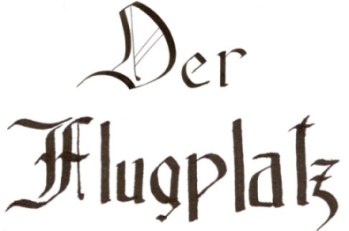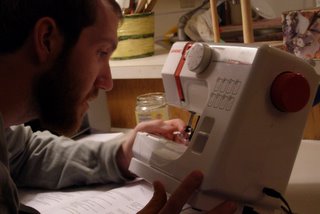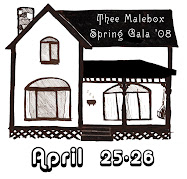I watched the Squid and the Whale last night, with a certain Chris Aberle, and we came to similar conclusions about it. If you like Wes Anderson's films, you'd love the tone and atmosphere of Squid. Jeff Daniels is amazing as a mostly washed-up writer/teacher with a head full of literary terms and himself. He's unabashedly amoral in both his life and his advice to his oldest son. And his gigantic beard is awesome.
Friday, January 27, 2006
The Squid and the *BLEEP*
Monday, January 23, 2006
A Prediction
Freewrite alert: May infuriate logicians and grammar Nazis.
The books are claiming to be written for teens, kids in middle and high school, and the plots, characters are conflicts are certainly congruent with the stereotype of what that life entails. That's fine. Kids can't jump from The Polar Express to John Donne, it's good to have writing directed at them where they are. The problem comes in with this sense of trying to make those problems (and more importantly the characters' reactions to them) seem normal, acceptable. My roommate Neal is big on the "Is/Aught" fallacy idea, that just because something "is" a certain way doesn't mean that that's how it should be.
This gets back to the discussion I had with Sam about the poet being a creator, having the ability to construct things as they should be instead of just copying what he sees like an unmanned camera just snapping away at proper increments.
I think the problem is that people know that art has this ability and therefore tend to project that onto any and all art. They're expecting to be shown something other than what the world offers, some kind of instruction or alternate view of a situation that offers a better way. So when they see the world carbon copied into a paperback, they accept it as how it "aught" to be, even though the author is simply reproducing the scene.
Friday, January 20, 2006
Rock and Film
For Your Ears
January 31: Of Montreal at Chop Suey in Seattle. Anyone interested in going, holla. Show starts at 8:00, so I'll leave the 'Scow by 2:00 at the latest.
February 14: Pretty Girls Make Graves at the Sub Ballroom. Come gawk at how emo kids crawl out of the woodwork and into their tight jeans for select events in Idaho.
February 24: Ok Go w/Motion City Soundtrack at the Cub in Pullman. I'm pretty excited for some sugar drenched pop rock.
For Your Eyes
January 20 - 22: Paradise Now at the Kenworthy. Looks good, it's a Warner Independent film, they've been putting out some good stuff lately. Basically follows two Palestinian suicide bombers for two days as they come to grips with what they're about to do. Check out the TRAILER.
January 27 - 29: The Squid and the Whale at the Kenworthy. Noah Baumbach's newest, based on his memories of growing up. Jeff Daniels stars, and a Baldwin shines (like they can do anything else). For those who don't know, Baumbach co-wrote The Life Aquatic with Wes Anderson. Be aware that while I've heard good things about it, I've also heard about a particulary graphic scene that might not be enjoyed by all. I believe that I'm previewing this movie, and I'll try to remember to post my take. In the meantime, TRAILER.
Wednesday, January 18, 2006
Baudelaire
This is a short response journal entry from my history class. Charles Baudelaire writing about Eugene Delacroix's love of "passion."
The description of Delacroix being in love with passion on p. 46 seemed notable to me. Being in love with love, or with the idea of something rather than the thing itself is a trademark (and stumbling block I believe) of artists, but rarely mentioned by their critics. I recently wrote a short essay about this tendency in Orsino of Shakespeare’s Twelfth Night. The man was crazy about love, and doing all the things that let others know that one is “in love.” But in reading all his declarations to Olivia, it becomes pretty clear that it’s not woman that he loves, but the passion itself. I say stumbling block because who are you most likely to marry? Someone who loves and knows you or someone that loves marriage? The latter seems to me to be the proper expression of the former, not something to obsess about on its own.
Not being familiar with Delacroix’s work beyond what is contained in this book, I can’t really say if this is something that he truly fell into, but Baudelaire seemed to think he did, and didn’t see it as a bad thing.
"Since I consider the impression transmitted to the artist by nature as the most important thing of all for him to translate, is it not essential that he should be armed in advance with all the most rapid means of translation?" - Eugene Delacroix
I liked the quote at the bottom of the page, about the importance of an artist being properly equipped with knowledge to accurately “translate” nature. This seems to be a lost notion among many artists today, in all genres. As soon as some pop musician tells you that he doesn’t have any use for those boring oldies, or worse yet, that coma-inducing classical nonsense, you can rest assured that 1. He’s lying, 2. His music will be horrendous and probably unbearably (and ironically) cliché. Any time you want to contribute your thoughts or work to an idea or medium of expression, the worst thing you can do is isolate yourself from the context of what you’re dealing with.
Odd
Monday, January 16, 2006
Digital Schmigital: Beauty Is 35mm Long
Tuesday, January 10, 2006
From The Egger
Going on over at Sam's Place
contemplations...
Materialists and Madmen never have any doubts.- G.K. Chesterton
I sometimes wonder what life would be like without doubts...
... about faith
... about God
... about creation
... about the bible
... about my decisions
... about my future
... about just about everything
G.K. explores this thought in the second chapter of his book entitled "Orthodoxy". Follow this thought for a second.
Imagination is the cornerstone of sanity. Imagination does not breed insanity, reason breeds insanity. "Poets do not go mad; but chess players do. Mathematicians go mad, and cashiers; but creative artists very seldom. Poetry is sane because it floats easily in an infinite sea; reason seeks to cross the infinite sea, and so make it finite."
Chesterton is not talking of logic, but of reason. The thought or motivation that everything must be explained, there must be a mathematical, scientific answer to all of man, all of creation, all of space. It is this type of "maniac" that us poets must collide with when discussing eternity, God, the reason of life... Poets can discuss these ungraspable concepts because they do not disbelieve anything... they are open to suggestion, to visions and to dreams... the reasonable man's disbelief is what makes him so dangerous. The mystic may not believe in God, but the athiest can't believe in God, it is impossible. He has so closed his mind to the unexplainable that he no longer has a choice. Whereas the mystic continues to have a choice.
Don't confuse the "mystic" as some pagan, uneducated, astrologist gypsy... I am a "mystic" and am none of those things... Well, I may be ignorant, but I am at least an educated ignoramous... The point is this: A man of only reason can never accept Christ, because the foundation of Christ is faith, and faith is one of those ungraspable, undefinable, mystical things that is much like the wind... I can feel it, see its influence, explain where it comes from, but in doing these things the wind continues to slip my grasp.
The poet only asks to get his head into the heavens. It is the logician who seeks to get the heavens into his head. And it is his head that splits.
This reminds me a lot of Sidney's Defense of Poesy, an essay on the artist's validity in a world that reveres science so highly. Sidney says that while the math nerds and scientists are bound by merely describing the world around them, poets can say anything. He goes even further suggesting that they write the world and things as they should be, not just as they are, and that our ability to create something new is an example of God in us, a way of imitating His Creation with something small of our own.
Another interesting point is the idea that poets are never liars, since they never really affirm anything, while scientists can hardly escape lying while trying to measure the distance between stars or what new potion will cure our ills. This was in response to one of the three main attacks on artists of the time, that 1.) they are liars, 2.) there are many more fruitful things to spend your time doing, and 3.) that poetry entices us to too many desires.
Sidney also points out the now cliched defense for fiction, that it can present truth in a more receivable way. "Now therein of all sciences is our poet the monarch. For he doth not only show the way, but giveth so sweet a prospect into the way, as will entice any man to enter into it." It might be wise to keep 1 Cor. 2:1-5 in mind while reading this, just about not placing faith in your own eloquence when talkin' bout the Lord.
This is a great quote from the essay, about poetry's place in the learned world:
"This purifying of wit - this enriching of memory, enabling of judgment, and enlarging of conceit[power of creation] - which commonly we call learning, under what name soever it come forth, or to what immediate end soever it be directed, the final end is to lead and draw us to as high a perfection as our degenerate souls, made worse by their clayey longings, can be capable of."
A Great Mystery To Man....
Sunday, January 08, 2006
Thankful That My Humbling Experiences Rarely Include Public Humiliation, But Think That Maybe They Sometimes Should...
I congratulated myself on not being one to slip into such folly and was thinking pretty well of myself.
When I got home, I had a message from Amy Ballard, a girl that I worked with for a week this summer in Colorado. We had a rotating staff of girls on our trips, and Amy had been picked to be the girl's leader on one of them, and did a fantastic job. In her message, she had just returned from Konnection, (yes, many things that were previously spelled with a C are spelled with a K in Kanakuk circles) a mid-year reunion of Kanakuk staff from both the Colorado and Missouri camps, with great news. Jamie Jo, the women's director of K-Colorado had asked her if she would be the full time girl's leader for Expedition this summer, my section of camp.
Was my reaction "That's awesome! Amy was an incredible leader last year and to have her be with us all summer will be great!" ? Hardly. My first thought was this: "Hm. Why wasn't I consulted about this offer? I mean, Clayton and I are running this Expedition thing aren't we?" For about a minute, all I thought about was being snubbed. No thought to what a blessing it will be to have this girl working with us, or happy that she's so happy to have the opportunity. Me me me, that's all that was going on in my head. Why wasn't I honored, where's MY due respect?
Now for those of you outside of the Kanakuk world, let me explain something. I do not run Expedition. It was started last year by four men better than myself, and it was the blessing of God that I ended up having a part in it. Through no action, diligence or ambition of my own did I end up getting to take kids out into the most beautiful country they've ever seen and help start what will hopefully be a beneficial outdoor ministry. I fell into it like a blind man wandering around cliffs. I could scarcely have asked for a better person to work with, and still my own pride was the first emotion ignited.
Shutterlove
Saturday, January 07, 2006
PO
It was the day before postage went up by two cents, and the post office was flooded. On top of the looming rate increase it was also noon, and the doors would close in just over an hour. Normally there were three postal employees helping customers and the line would move along fairly quickly, sometimes too fast for Josh to scribble a send and return address on whatever he was mailing that day without walking and writing at once. Today there were only two. There was a bit of annoyance in the air, but Josh was completely at peace with the situation. He found himself here about once a week, usually mailing books, sometimes small gifts to his family. Sometimes he could walk right up to the counter and finish his business in under five minutes, other days he would spend close to thirty minutes waiting. It didn’t matter to him, he never stopped by with any pressing engagement immediately following his mailing.
“Anyone here for pickup, non-monetary transactions…?” an employee asked, just coming up behind the counter.
A few people pulled out of the main line to pick up their held mail or retrieve a package, and left.
“So…do these all weigh about the same?” asked the postman. The husband replied that they did, in somewhat broken English.
“Ok, I’ll print up the same tag for all of them, and we’ll send them off as you tape up the rest, ok?”
Josh looked to the opposite end of the counter to see about fifteen more of the same boxes waiting to be taped.
As the tags were printed the man went back and forth between taping and hauling to the postman.
“Can I help anyone with just a pickup? Something without money?” asked the postman.
A man of about sixty in insulated coveralls and thick, dark gold rimmed glasses was glaring at the postman. No twitching up of the lip or wink of the eye to signify that this was said in good humor.
“I wish I could, but unfortunately I’m not authorized to do monetary transactions today, sorry.”
Josh understood this. He’d been in too many situations similar to the postman’s of his own not to sympathize with him. Rules can be ridiculous to the customer, and they seem ridiculous to you too, but when you’re working for The Man, the rule is the end of the discussion.
Josh couldn’t see the coveralled man’s reaction to this, but he imagined a shaking of the head, maybe a ‘psh’ noise. He found himself smirking at this fabricated response, then quickly withdrew his smile. Someone might think that I’m smirking in favor of this guy, at the lameness of the post office guy, he thought.
“What the hell is wrong with you? Why would you say something like that?” Josh yelled.
The two stared at each other for a few seconds Then Josh spit in his general direction and walked out of the building, cursing and thinking horrible thoughts.



